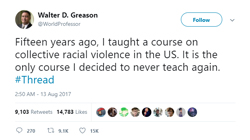Could you practice nonviolence and follow your faith while living in a conflict zone in the Middle East? Director Jim Hanon brings his film “Little Town of Bethlehem” to Wilson Auditorium at Monmouth University in West Long Branch, NJ on Monday, October 10 at 7:30 pm.
Little Town of Bethlehem shares the story of three men of different faiths, and their lives in Israel and Palestine. Each grew up in the Holy Land surrounded by conflict and battle, and each found the courage to end violence through nonviolence. The film examines the struggle to promote equality through nonviolent engagement in the midst of incredible hostility that has dehumanized all sides. Their story explores each man’s decision to risk everything, in order to bring an end to violence in their lifetime.
A Question & Answer session with filmmaker Jim Hanon will be held after the screening.
The event is sponsored by the Department of Communication and the Performing Arts Series, and part of the “On Screen: In Person” film series, which brings six films and filmmakers to Monmouth University as part of a tour of the Eastern seaboard. On Screen: In Person is made possible in part through the generous support of the National Endowment for the Arts’ Regional Touring Program.
For more information, contact:
Dr. Chad Dell, Chair Department of Communication
(732) 263-5192
cdell@monmouth.edu
Jim Hanon is the filmmaker and artist in residence of EGM Films. As film director and screenwriter, he is the creative force behind Little Town of Bethlehem (2009), The Grandfathers (2009), Miss HIV (2008), End of the Spear (2005),and Beyond the Gates of Splendor (2002). Hanon grew up with the simple values of a farming community in eastern Washington State. After attending a small art college, he began his first career in advertising. His career has included being a vice president at Leo Burnett, co-founding Hanon McKendry and Compass Arts, and serving as chief creative officer of Every Tribe Entertainment.
He has won numerous international, national and regional awards for creative achievement. Hanon transitioned from advertising to film-making as a natural expansion of his artistic abilities and because he felt stories are the most respectful and engaging way to explore emotional insight. He believes that art is a fusion of the subject and the artist. Before he spends a couple of years making a film, he must find a deeply personal meaning within the story.




